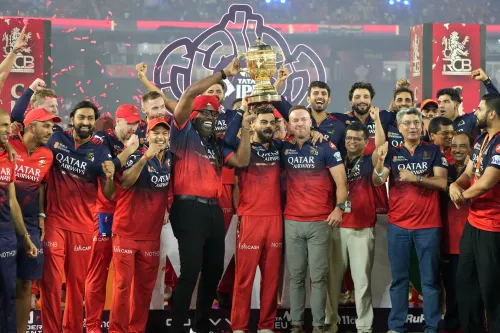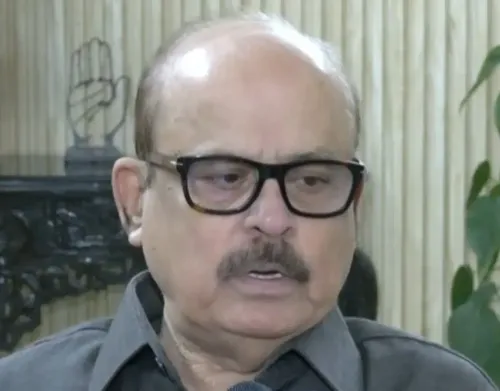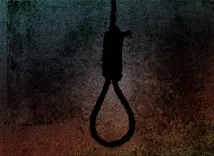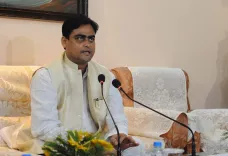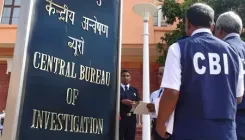How is PM Modi Praising Grassroots Efforts Behind the Swachh Bharat Mission?
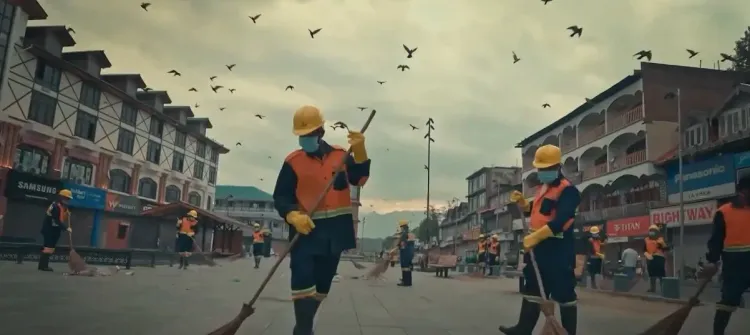
Synopsis
Key Takeaways
- Swachh Bharat Mission showcases the power of collective action.
- Over 15 crore participants contribute to cleanliness efforts.
- Innovative waste management practices are emerging across India.
- Women-led initiatives are transforming cities.
- Cleanliness should be a daily priority for sustainable impact.
New Delhi, July 27 (NationPress) In the 124th episode of his monthly radio program 'Mann Ki Baat', Prime Minister Narendra Modi celebrated the relentless spirit of the nation in advancing the 'Swachh Bharat Mission', referring to it as a brilliant example of collective determination turning the seemingly unachievable into reality.
"At times, certain tasks may appear impossible to some. They question, 'Could this even be accomplished?' Yet, when the populace unites under a common goal, even the impossible becomes realizable. The 'Swachh Bharat Mission' stands as the most significant illustration of this unity. Soon, the mission will mark 11 years, and its importance remains unchanged," PM Modi stated.
The Prime Minister characterized this initiative as a genuine mass movement, asserting, "Over the past 11 years, the 'Swachh Bharat Mission' has evolved into a widespread movement. Citizens view it as their responsibility, exemplifying true public participation."
He noted that the annual Swachh Survey continues to motivate citizens to maintain cleanliness in their surroundings.
"This year, over 4,500 cities and towns participated, with more than 15 crore individuals engaging. This is not a trivial figure; it represents the voice of Swachh Bharat," he remarked.
PM Modi emphasized that various cities are innovating unique strategies to tackle cleanliness issues.
"Our cities and towns are adopting distinct methods tailored to their specific needs and environments. The effects of these initiatives extend beyond localities; the entire nation is embracing these practices," he said.
Sharing motivating examples from all corners of India, he remarked, "The residents of Kirtinagar in Uttarakhand are pioneering waste management in the hilly regions. Likewise, technology-assisted organic waste management is thriving in Mangaluru. In a small city called Roing in Arunachal Pradesh, waste management had once posed significant health risks, yet the locals took charge."
"The Green Roing Initiative was launched, resulting in the creation of an entire park from recycled waste. Additionally, innovative water management practices have emerged in Karad and Vijayawada, and the cleanliness at the River Front in Ahmedabad has garnered widespread attention," he mentioned.
PM Modi commended the endeavors of the women-led team 'Sakaratmak Soch' in Bhopal, consisting of 200 women.
"They not only clean but also strive to change perceptions. By collectively cleaning 17 parks and distributing cloth bags, every one of their actions sends a positive message. As a result of such initiatives, Bhopal has made significant progress in the Swachh Survey," he added.
He also recognized the enduring efforts of the Gomti River team in Lucknow.
"We must acknowledge the Gomti River team in Lucknow, which has been diligently engaged in cleanliness activities every Sunday for the past decade," he stated.
Highlighting the impact of women-led initiatives, PM Modi cited the example of Bilha in Chhattisgarh, where women received training in waste management and collectively transformed the city's environment.
Commenting on Goa's capital, he added, "The efforts in Panaji city are commendable, where waste is segregated into 16 categories, and this initiative is also spearheaded by women. Panaji has even been honored with the President's award."
"Cleanliness is not a one-time endeavor. It requires prioritization every day, throughout the year, for our nation to remain clean," he concluded.

